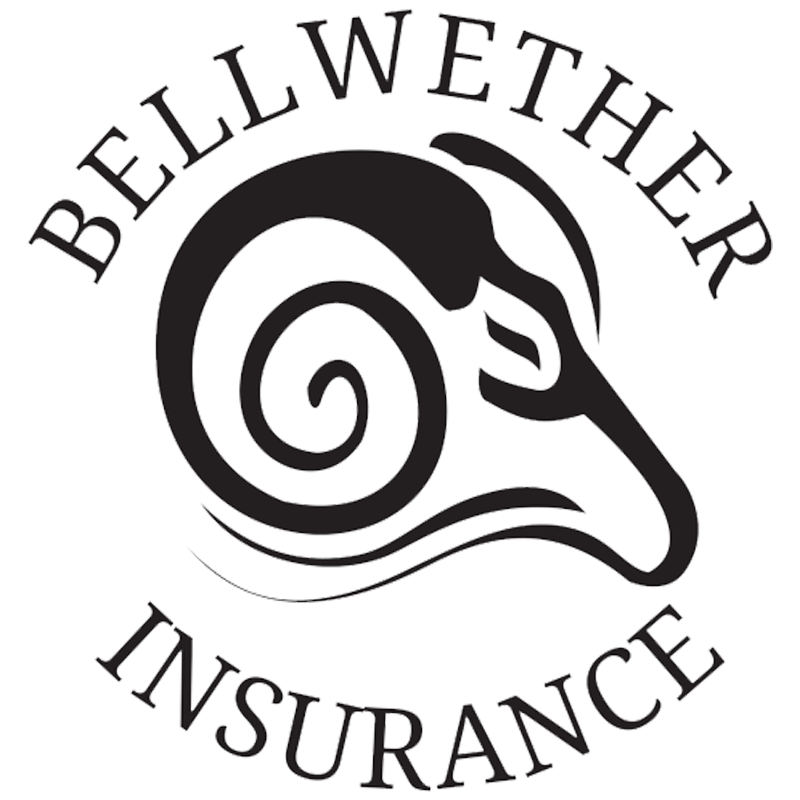Ohio Emergency Medicine Business Insurance

Index
Contact Us
Phone
216-600-2828
Location
100 N. Center Street PO Box 627 LaGrange, OH 44050
Running an emergency medicine practice in Ohio comes with its own set of challenges and responsibilities. One of the most crucial aspects of managing such a practice is ensuring that you have the right insurance coverage. This article will delve into the various types of business insurance available for emergency medicine practices in Ohio, the importance of each, and how to navigate the complexities of insurance policies.
Understanding the Basics of Business Insurance
Before diving into the specifics of emergency medicine business insurance, it’s essential to understand what business insurance is and why it is necessary. Business insurance is a type of coverage designed to protect your practice from financial losses due to unforeseen events. It acts as a safety net, ensuring that your practice can withstand unexpected challenges without jeopardizing its financial stability or operational capability.
The Importance of Business Insurance
Every business, regardless of its size or industry, faces risks. For emergency medicine practices, these risks can include malpractice claims, property damage, and even business interruption. Having comprehensive business insurance helps mitigate these risks and provides peace of mind, allowing healthcare providers to focus on patient care. Furthermore, the healthcare industry is particularly vulnerable to lawsuits, and the financial implications of a malpractice claim can be devastating. Business insurance not only covers legal fees but can also help in managing the reputational damage that may arise from such claims.
Types of Business Insurance
There are several types of business insurance that emergency medicine practices in Ohio should consider. These include general liability insurance, malpractice insurance, property insurance, and business interruption insurance. Each type serves a unique purpose and offers different protections. For instance, general liability insurance protects against claims of bodily injury or property damage that may occur on your premises, while malpractice insurance specifically safeguards against claims of negligence in patient care. Additionally, property insurance covers the physical assets of your practice, such as medical equipment and office supplies, ensuring that you can quickly recover from any physical loss. Business interruption insurance is particularly crucial for emergency medicine practices, as it covers lost income during periods when the business cannot operate due to unforeseen circumstances, such as natural disasters or significant repairs. This type of coverage can be the difference between a practice bouncing back or facing long-term financial strain.

General Liability Insurance
General liability insurance is one of the foundational types of coverage that every emergency medicine practice should have. This insurance protects your practice from claims of bodily injury, property damage, and personal injury. Without this essential coverage, your practice could face significant financial strain from unexpected legal challenges, which could ultimately jeopardize your ability to provide care to patients.
Coverage Details
General liability insurance typically covers legal fees, medical expenses, and settlements if your practice is found liable for an incident. For example, if a patient slips and falls in your waiting room, this insurance would cover the costs associated with their injury claims. Additionally, it may also cover incidents that occur off-site, such as a patient being injured during a community health event hosted by your practice. This broad scope of coverage ensures that you are protected in various scenarios that could arise in the course of your operations.
Why You Need It
In the healthcare industry, the risk of lawsuits is ever-present. General liability insurance not only protects your finances but also your reputation. Having this insurance can help you manage the fallout from incidents that may occur in your practice. Moreover, being insured can enhance your credibility with patients and partners alike, as it demonstrates a commitment to professionalism and accountability. In an era where patients are increasingly aware of their rights and the potential for legal recourse, having general liability insurance can serve as a reassurance that you are prepared to handle any unfortunate events that may arise, thereby fostering trust and confidence in your practice.
Malpractice Insurance
Malpractice insurance, also known as professional liability insurance, is crucial for any healthcare provider. This type of insurance protects against claims of negligence or inadequate care that may result in patient harm. Without this safety net, healthcare professionals could face significant financial burdens that threaten not only their practice but also their personal assets.
Understanding Malpractice Claims
Malpractice claims can arise from various situations, such as misdiagnosis, surgical errors, or failure to provide appropriate treatment. These claims can be financially devastating, making malpractice insurance a necessity for emergency medicine practices. Furthermore, the emotional toll of facing a malpractice suit can be overwhelming for providers, as it can lead to stress, anxiety, and a loss of confidence in their clinical skills. Understanding the nuances of these claims is essential for healthcare providers, as even minor errors can escalate into major legal battles.
Choosing the Right Coverage
When selecting malpractice insurance, it’s important to consider factors such as coverage limits, the scope of protection, and the insurer's reputation. Many providers opt for higher limits due to the potentially high costs associated with malpractice claims. Additionally, it is wise to review the policy's exclusions and conditions carefully, as not all incidents may be covered under standard plans. Some practitioners may also benefit from tailored policies that address specific risks associated with their specialty, ensuring comprehensive protection in the event of a claim. Engaging with an insurance broker who specializes in healthcare can provide valuable insights and help navigate the complex landscape of malpractice insurance options.
Property Insurance
Property insurance protects your physical assets, including your office space, medical equipment, and supplies. This coverage is essential for safeguarding your practice against risks such as theft, fire, or natural disasters. Without adequate property insurance, a single incident could jeopardize not just your equipment, but also your ability to serve your patients effectively, leading to potential financial losses and disruptions in care.
What Does Property Insurance Cover?
Property insurance typically covers the costs of repairing or replacing damaged property. This can include everything from office furniture to advanced medical equipment. In the event of a disaster, having this insurance can ensure that your practice can quickly recover and continue providing care. Additionally, many policies offer coverage for business interruption, which can help cover lost income during the time your practice is unable to operate due to damage. This aspect of property insurance is particularly crucial for healthcare providers, as it helps maintain financial stability while you work to restore your practice.
Assessing Your Property Needs
To determine the right amount of property insurance, assess the value of your assets and consider potential risks in your area. For instance, if your practice is located in an area prone to flooding, you may want to consider additional coverage for water damage. It is also wise to regularly update your inventory of assets, as the value of your equipment and supplies can change over time. Engaging with a professional insurance agent can provide valuable insights into the specific risks associated with your location and help tailor your coverage to meet the unique needs of your practice. Furthermore, understanding the nuances of your policy, such as deductibles and limits, will empower you to make informed decisions about your insurance needs, ensuring that you are adequately protected against unforeseen events.
Business Interruption Insurance
Business interruption insurance is often overlooked but is vital for emergency medicine practices. This coverage helps replace lost income if your practice is unable to operate due to a covered event, such as a fire or natural disaster. The importance of this insurance cannot be overstated, as it serves as a financial safety net that allows practices to navigate through unforeseen disruptions without incurring crippling losses. In a field where timely medical attention is crucial, ensuring that your practice can maintain operations—even when faced with adversity—is essential for both your business and your patients.
How It Works
If your practice is forced to close temporarily, business interruption insurance can cover lost revenue, fixed expenses, and even payroll for your staff. This ensures that your practice can survive financially while you work to get back on your feet. Additionally, this type of insurance often includes coverage for extra expenses, which can help you expedite the recovery process. For instance, if you need to rent temporary office space or purchase new equipment to replace damaged items, business interruption insurance can help offset these costs, allowing you to focus on providing care rather than worrying about finances.
Evaluating Your Risks
Consider the potential risks that could disrupt your business operations. By understanding these risks, you can better assess the amount of coverage you need for business interruption insurance. Factors such as location, the nature of your practice, and historical data on local emergencies should all be taken into account. For example, if your practice is situated in an area prone to flooding or severe storms, it may be prudent to secure a higher level of coverage. Moreover, consulting with an insurance professional can provide valuable insights into tailoring your policy to fit the unique needs of your practice, ensuring that you are adequately protected against potential threats.
In addition to the primary types of insurance discussed, there are several other coverage options that emergency medicine practices may find beneficial. These can provide additional layers of protection against specific risks.
Cyber Liability Insurance
With the increasing reliance on technology in healthcare, cyber liability insurance has become essential. This coverage protects against data breaches and cyberattacks that could compromise patient information. As healthcare providers store vast amounts of sensitive data electronically, the risk of cyber threats continues to grow. Cyber liability insurance not only covers the costs associated with data recovery and legal fees but also provides access to expert resources for managing the aftermath of a breach. This proactive approach can help practices maintain their reputation and trust with patients while ensuring compliance with privacy regulations.
Workers' Compensation Insurance
Workers' compensation insurance is required in Ohio for businesses with employees. This insurance covers medical expenses and lost wages for employees who are injured on the job, ensuring that your staff is protected while they work in your practice. Beyond the basic coverage, many policies also offer additional benefits such as vocational rehabilitation services, which can assist injured employees in returning to work more quickly and safely. This not only helps in maintaining a healthy work environment but also fosters employee loyalty and morale, as staff members feel valued and supported during challenging times.
Equipment Breakdown Insurance
Equipment breakdown insurance covers the repair or replacement of essential medical equipment that may fail due to mechanical issues. This can be particularly important for emergency medicine practices that rely on advanced technology to provide care. The sudden failure of critical equipment, such as MRI machines or ventilators, can lead to significant downtime and financial loss. Moreover, this insurance often extends to cover losses incurred during the repair period, including lost revenue and extra expenses. By investing in equipment breakdown insurance, practices can ensure that they are prepared for unexpected equipment failures, allowing them to maintain high standards of patient care without interruption.
Business Interruption Insurance
Business interruption insurance is another vital coverage option that can help emergency medicine practices navigate unforeseen disruptions. This insurance provides financial support in the event that your practice must temporarily close due to a covered peril, such as a natural disaster or significant equipment failure. It can cover lost income, ongoing expenses, and even payroll during the shutdown period, allowing practices to recover more swiftly and resume operations without incurring crippling financial strain. In a field where timely care is crucial, having this safety net can make all the difference in maintaining service continuity and safeguarding the well-being of both patients and staff.

Finding the Right Insurance Provider
Choosing the right insurance provider is as important as selecting the right coverage. The right provider can make a significant difference in your experience and the support you receive during a claim.
Researching Providers
Start by researching insurance providers that specialize in healthcare. Look for companies with a strong reputation, positive reviews, and a history of working with emergency medicine practices. This can help you find a provider that understands your unique needs.
Comparing Quotes
Once you have a list of potential providers, request quotes and compare coverage options. Pay attention to policy limits, exclusions, and premiums. This will help you make an informed decision about which provider offers the best value for your practice.
Cost of Business Insurance in Ohio
The cost of business insurance can vary widely based on several factors, including the size of your practice, the types of coverage you choose, and your claims history. Understanding these factors can help you budget effectively.
Factors Influencing Costs
Some of the key factors that influence the cost of business insurance include:
- Type of coverage: Different types of insurance have different premiums.
- Location: Insurance costs can vary based on geographic location and local regulations.
- Claims history: A history of claims can lead to higher premiums.
- Size of the practice: Larger practices may face higher costs due to increased risk.
Budgeting for Insurance
When budgeting for business insurance, consider setting aside a specific percentage of your revenue for insurance costs. This can help ensure that you have adequate coverage without straining your finances.
Legal Requirements for Emergency Medicine Practices in Ohio
In Ohio, there are specific legal requirements regarding insurance for medical practices. Understanding these requirements is essential to ensure compliance and protect your practice.
State Regulations
Ohio law mandates that all healthcare providers carry malpractice insurance, although the minimum coverage limits can vary. Familiarize yourself with these regulations to ensure that your practice meets the necessary legal standards.
Professional Licensing Requirements
In addition to insurance requirements, emergency medicine providers must maintain their professional licenses. This often includes proof of insurance as part of the licensing process, making it crucial to have the right coverage in place.
Tips for Managing Your Insurance Policies
Once you have secured the necessary insurance coverage for your emergency medicine practice, managing these policies effectively is key to maintaining protection.
Regular Policy Reviews
Regularly reviewing your insurance policies is essential to ensure that your coverage remains adequate as your practice grows and changes. This includes assessing your coverage limits and making adjustments as needed.
Staying Informed About Changes
Insurance regulations and industry standards can change over time. Stay informed about any changes that may affect your coverage or legal requirements, and adjust your policies accordingly.
Conclusion
In conclusion, having the right business insurance is vital for emergency medicine practices in Ohio. From general liability and malpractice insurance to property and business interruption coverage, each type plays a crucial role in protecting your practice from potential risks.
By understanding the various types of insurance available, evaluating your specific needs, and choosing the right provider, you can ensure that your emergency medicine practice is well-protected. Regular policy reviews and staying informed about changes in regulations will further enhance your practice's security.
Investing time and resources into securing the right insurance coverage can provide peace of mind and allow you to focus on what truly matters: delivering exceptional care to your patients.


